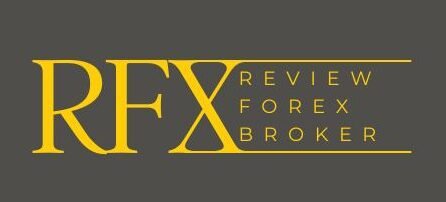Choosing the right forex broker is one of the most important decisions a trader can make. With the forex market being decentralized and global, it opens the door for both trustworthy brokers and shady operators. One key factor in identifying a reputable broker is its licensing and regulation. Not all regulatory bodies are created equal, so understanding which ones matter most is crucial for protecting your investments and ensuring a safe trading experience.
In this blog, we will break down the role of regulatory authorities in forex trading, highlight the most important regulators globally, and explain how to verify if your broker is properly licensed.
Why Broker Licensing Matters
Forex broker regulation is vital for ensuring the safety, transparency, and fairness of the market. Regulatory authorities enforce rules designed to protect traders, ensure ethical conduct by brokers, and prevent illegal activities such as fraud and market manipulation.
A broker’s license is a sign that the company is held accountable to a specific regulatory body. This means the broker must:
- Operate in a transparent manner
- Segregate client funds from company assets
- Provide fair and accurate trading conditions
- Adhere to anti-money laundering (AML) and know your customer (KYC) policies
- Offer a clear mechanism for resolving disputes
Without proper regulation, brokers can engage in unethical practices, such as manipulating prices or failing to honor withdrawal requests. In extreme cases, unregulated brokers may simply disappear with clients’ money.
Top Regulatory Authorities in Forex Trading
- Financial Conduct Authority (FCA) – UKThe Financial Conduct Authority (FCA) is widely regarded as one of the most reputable regulatory bodies in the world. Based in the United Kingdom, the FCA has strict rules and regulations designed to protect traders and ensure brokers act in their clients’ best interests.
- Key Features:
- Client funds must be segregated from the broker’s operational funds.
- Brokers are required to maintain minimum capital requirements.
- Compensation schemes (like the FSCS) cover up to £85,000 in the event of broker insolvency.
- Key Features:
- Commodity Futures Trading Commission (CFTC) and National Futures Association (NFA) – USAIn the United States, forex brokers are regulated by the Commodity Futures Trading Commission (CFTC) and the National Futures Association (NFA). The U.S. forex market is heavily regulated, and only a handful of brokers are authorized to offer services to U.S. clients.
- Key Features:
- Brokers must maintain a capital of at least $20 million.
- Strict leverage limits are imposed (maximum of 50:1).
- Transparent reporting and strong consumer protection mechanisms are in place.
- Key Features:
- Australian Securities and Investments Commission (ASIC) – AustraliaThe Australian Securities and Investments Commission (ASIC) is a respected regulatory body that oversees forex brokers operating in Australia. ASIC is known for its balanced approach to regulation—offering solid trader protections while allowing brokers some flexibility.
- Key Features:
- Client funds must be held in segregated accounts.
- Brokers must meet capital adequacy requirements.
- ASIC regularly audits brokers to ensure compliance.
- Key Features:
- Cyprus Securities and Exchange Commission (CySEC) – Cyprus/EUThe Cyprus Securities and Exchange Commission (CySEC) is one of the most popular regulatory authorities in Europe, primarily because Cyprus is a member of the European Union, allowing CySEC-regulated brokers to operate across the EU through MiFID (Markets in Financial Instruments Directive).
- Key Features:
- CySEC brokers are required to keep client funds in segregated accounts.
- Compensation schemes (like the Investor Compensation Fund) provide protection up to €20,000 in the event of broker insolvency.
- MiFID-compliant brokers can offer services throughout the EU.
- Key Features:
- Financial Sector Conduct Authority (FSCA) – South AfricaThe Financial Sector Conduct Authority (FSCA) is the regulatory authority overseeing forex brokers in South Africa. The FSCA is gaining recognition for its efforts in enhancing transparency and protecting investors in a rapidly growing African market.
- Key Features:
- Brokers must adhere to financial and operational standards.
- The FSCA promotes transparency, fair trading, and the protection of client funds.
- Brokers are regularly audited to ensure compliance with regulations.
- Key Features:
- Financial Services Agency (FSA) – JapanThe Financial Services Agency (FSA) in Japan regulates one of the largest and most active forex trading markets in the world. The FSA has strict rules designed to protect traders and ensure that brokers operate fairly.
- Key Features:
- Leverage is capped at 25:1 for forex trading.
- Brokers must maintain capital requirements and segregate client funds.
- The FSA imposes strict auditing and reporting requirements.
- Key Features:
How to Verify a Broker’s License
Before committing to any broker, it’s essential to verify its regulatory status. Here’s how to do it:
- Check the Broker’s Website: Most legitimate brokers prominently display their regulatory information and license number on their websites. Look for this in the “About” section or in the website’s footer.
- Visit the Regulator’s Website: Go to the regulatory authority’s website (e.g., FCA, ASIC, CySEC) and use their online tools to verify the broker’s license number. Ensure that the license is active and in good standing.
- Look for Third-Party Reviews: Reputable review platforms often assess a broker’s licensing and regulatory standing. Be wary of brokers with numerous negative reviews or those operating in highly lax jurisdictions.
- Beware of Offshore Licensing: Some brokers may claim regulation from less stringent or unknown authorities. These brokers may not offer the same level of protection as those regulated by top-tier authorities like the FCA or ASIC.
Conclusion
Understanding broker licensing and regulation is crucial for your safety as a forex trader. Regulatory authorities like the FCA, CFTC, ASIC, and CySEC provide essential safeguards that ensure brokers operate ethically and transparently. By choosing a broker regulated by a reputable authority and taking steps to verify their credentials, you can trade with confidence and protect your investments from potential fraud and malpractice.
When it comes to forex trading, it’s always better to prioritize security and transparency. A properly licensed broker will offer not only peace of mind but also a reliable trading experience in an industry that requires vigilance and caution.

